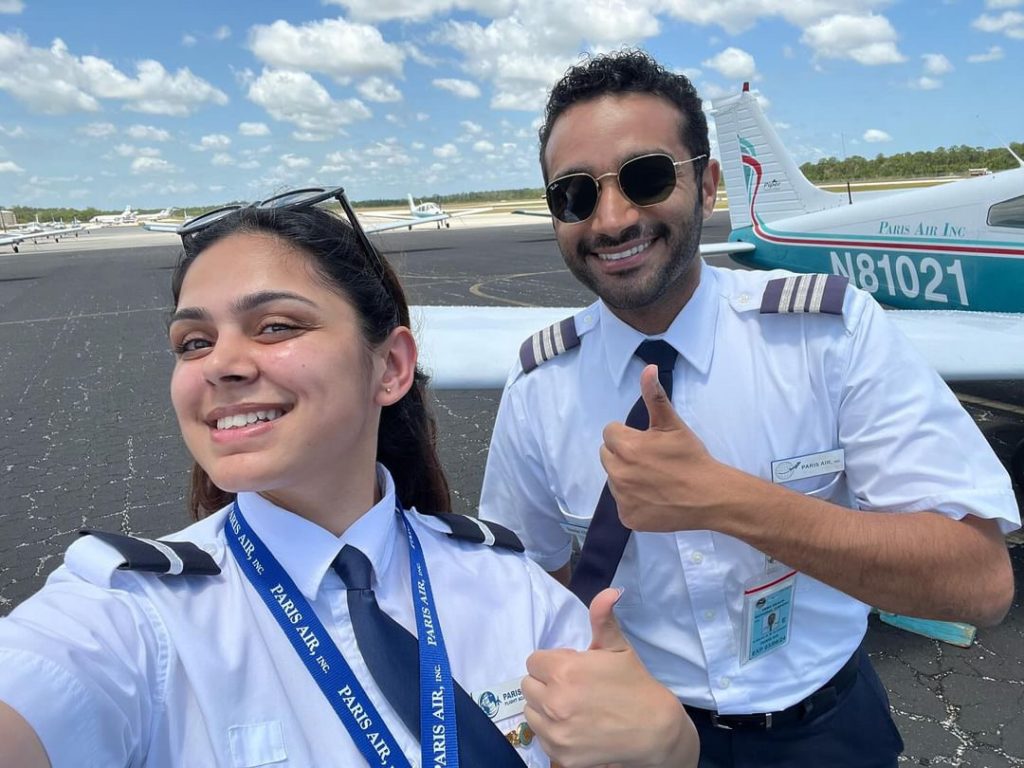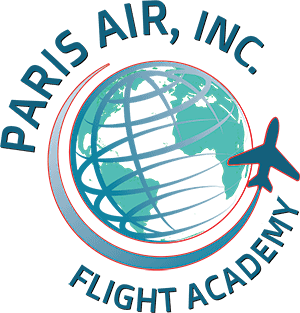The aviation industry offers a multitude of career opportunities for those with a passion for flying. Whether you’re just starting with a Private Pilot License (PPL) or advancing to a Certified Flight Instructor Instrument (CFII), each certification unlocks different professional avenues. Let’s explore the various careers in aviation and the certifications needed for each.
1. Airline Pilot
Career Overview: Starting with one of the most obvious career choices, Airline pilots fly passengers and cargo on scheduled flights. They operate aircraft for regional or major airlines, requiring advanced piloting skills and adherence to strict safety protocols.
Required Certifications:
- Private Pilot License (PPL): The foundational step.
- Commercial Pilot License (CPL): Allows for compensated flight operations.
- Airline Transport Pilot (ATP) License: Mandatory for airline captains, requiring extensive flight experience.

2. Charter Pilot
Career Overview: Becoming a Charter Pilot is another popular career in aviation. Charter pilots provide on-demand flight services to private clients or small groups, offering personalized travel experiences.
Required Certifications:
- Private Pilot License (PPL): Initial step to becoming a pilot.
- Commercial Pilot License (CPL): Needed for compensated charter services.
- Instrument Rating (IR): Essential for flying in varied weather conditions.
- Multi-Engine Rating (MER): Often required for flying larger charter aircraft.
3. Corporate Pilot
Career Overview: Corporate pilots fly executives and employees for private companies, often on luxurious, business-configured aircraft.
Required Certifications:
- Private Pilot License (PPL): Initial qualification.
- Commercial Pilot License (CPL): Allows for paid flight services.
- Instrument Rating (IR): Necessary for operating in diverse weather.
- Multi-Engine Rating (MER): Typically required for corporate jets.
4. Flight Instructor
Career Overview: Flight instructors train aspiring pilots, helping them achieve their pilot certifications and develop their flying skills. Becoming a flight instructor is also a great way to give back to the aviation community while building flight time.
Required Certifications:
- Private Pilot License (PPL): Initial requirement.
- Commercial Pilot License (CPL): Needed for compensation.
- Certified Flight Instructor (CFI): Allows you to teach and train student pilots.
- Certified Flight Instructor Instrument (CFII): Qualifies you to instruct instrument flight.
- Multi-Engine Instructor (MEI): Enables you to teach in multi-engine aircraft.
5. Helicopter Pilot
Career Overview: Helicopter pilots operate rotorcraft for various purposes, including medical evacuations, search and rescue, news broadcasting, and tourism.
Required Certifications:
- Private Pilot License (PPL): Basic requirement for rotorcraft.
- Commercial Pilot License (CPL): Needed for compensated helicopter operations.
- Instrument Rating (IR): Essential for flying in varied weather conditions (specific to helicopters).
- Certified Flight Instructor – Helicopter (CFI-H): Allows you to teach helicopter flying.
6. Agricultural Pilot
Career Overview: Agricultural pilots operate crop dusters or aerial application aircraft, playing a crucial role in modern farming.
Required Certifications:
- Private Pilot License (PPL): Basic flying skills.
- Commercial Pilot License (CPL): Allows for paid agricultural flying.
- Tailwheel Endorsement: Often required for crop duster aircraft.
7. Aerial Firefighter
Career Overview: Aerial firefighters operate aircraft equipped to combat wildfires, contributing significantly to emergency response efforts.
Required Certifications:
- Private Pilot License (PPL): Initial step.
- Commercial Pilot License (CPL): Needed for compensation.
- Instrument Rating (IR): Essential for adverse conditions.
- Multi-Engine Rating (MER): Required for larger firefighting aircraft.
8. Search and Rescue Pilot
Career Overview: When it comes to careers in aviation, Search and rescue pilots is a unique mix of first responder and pilot.Search and rescue pilots participate in missions to locate and rescue individuals in distress, often in challenging and remote environments.
Required Certifications:
- Private Pilot License (PPL): Foundation.
- Commercial Pilot License (CPL): For compensated missions.
- Instrument Rating (IR): Crucial for diverse weather operations.
- Search and Rescue Training: Specialized training programs are often required.
9. Ferry Pilot
Career Overview: Ferry pilots are responsible for delivering aircraft from one location to another, often over long distances and in varying conditions.
Required Certifications:
- Private Pilot License (PPL): Basic requirement.
- Commercial Pilot License (CPL): Needed for compensated ferry operations.
- Instrument Rating (IR): Essential for flying in varied weather conditions.
- Multi-Engine Rating (MER): Often required for ferrying larger, multi-engine aircraft.
10. Aviation Safety Inspector
Career Overview: Aviation safety inspectors work with regulatory bodies like the FAA to enforce safety standards and conduct inspections.
Required Certifications:
- Private Pilot License (PPL): Basic aviation knowledge.
- Commercial Pilot License (CPL): Advanced understanding of flight operations.
- Inspection Authorization (IA): Specialized training and certification.
The aviation industry is diverse and dynamic, offering numerous career paths for pilots at every certification level. Whether you’re interested in teaching, flying for airlines, engaging in specialized roles like aerial firefighting, or pursuing corporate aviation, there’s a niche for you. The key is to continue advancing your certifications, gaining experience, and exploring opportunities that align with your interests and career aspirations. We hope that by exploring the different careers in aviation you can be inspired to diversify your strengths and discover your passions.
Looking to explore more careers in aviation? Schedule a discovery flight with us and see if becoming a pilot is the right choice for you! Contact us today.

